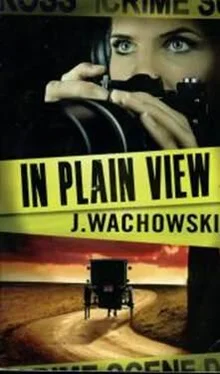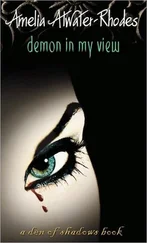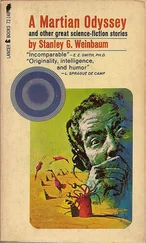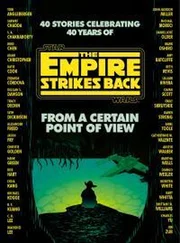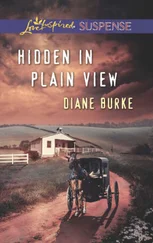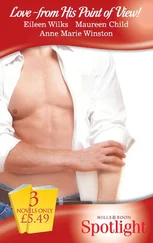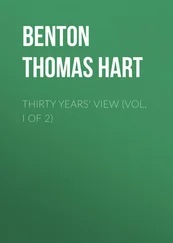Her mom kept a flashlight on top of the fridge in the basement for tornado drills and storms. Jenny had to stand on a plastic box to reach it. Her aunt’s photo work was on the table near the washing machine.
Jenny took the picture from her mother’s room and laid it next to the ones her aunt had made that day.
Oh yeah. Oh yeah.
It was him.
11:27:09 p.m.
Maybe his luck was changing.
The house was quiet and dark. He almost went inside. But this time he was watching very carefully. He saw the faint light click on and off in Gina’s bedroom-a nightlight, or the closet light maybe? A few minutes later, a light popped up in the basement window.
One of the girls must be awake.
Good thing he hadn’t gone there. He wouldn’t have been breaking the law or anything. He had a key. But there was no sense getting them all excited until he’d had a look.
The right thing to do was wait. Wait and watch.
Sooner or later the house would be empty. Then, he’d go in and see if maybe Maddy O’Hara had found something that belonged to him. Something that might make her hot to play reporter.
Watching was the smart move.
From now on, he’d watch her carefully. And he’d know when she’d gone too far.
VIDEO: reprint of news color photo tree/ladder/rope visible. Crowd of men watch as body lowered. (Slow zoom out)
Newsprint caption. Super over photo. Roll as crawl:
“Unidentified man in Amish clothing was found dead yesterday in a field south of Route 289. Police and fire department services were brought to the scene by an anonymous phone caller.”
7:03:28 a.m.
College Boy arrived on time and raring to go for our first interview. Unfortunately, Jenny’s school wasn’t open at the crack of dawn. Failing to anticipate the intersection of work and family can be fatal in my business.
On the other hand, the survival instinct kicking in with a vengeance does add a certain edge to the morning.
“This is my niece, Jenny,” I said as we piled into the truck. “We’re taking her with us.”
“Hi,” Jenny said.
“Hey.” He nodded hello and offered his hand to guide her over a spaghetti pile of cables and stick bags, so she could strap herself into the spare jump seat. “Wow. You two are related?”
Jenny hit me with her big-eyed, blank look-the mask of trouble. She resembles the female side of my family: smooth brown hair, round dark eyes, and the translucent skin of an Irish elf. Even for a kid, she was small.
Looks-wise, I got my dad’s package: the Viking strain of Celtic blood, tall and broad, plenty of freckles, wild hair which is politely known as red, but actually closer to orange, when I don’t color it-which is never. I’d dyed it fatal-blond right before the job interview. I’m all for irony. Now Ainsley and I looked more like relations than Jenny and I.
“I’m the black sheep of the family,” I said. “Let’s roll.”
Ainsley took a convoluted back route of smaller roads to get us to the site of yesterday’s incident and avoid the morning rush hour. We passed fields, farms and for sale signs.
September was a good time to be in Chicago-another two months, we’d all be freezing our asses off. The rising sun cast a perfect yellow light on dead grass and reddened sumac leaves. I opened the window to snap a few pictures and the autumn air rushed me, crisp with the scent of endings and beginnings. The wind helped blow away the last of the dusty, creepy feeling that had followed me home last night. I was on my way to work. Life was good.
Since I was busy hanging my head out the window taking pictures, Ainsley focused on getting Jenny to chat. It didn’t take long for the two of them to bond; they were practically peers. As soon as we parked, Ainsley set her up with something to watch in the back of the truck. What he was doing with cartoons in stock, I don’t want to know.
It took twenty long minutes to prep for our quickie on-camera interview with Al Lowe, the man whose land had been the site of yesterday’s tragedy. The fact that College Boy had managed to find the man and schedule an interview on such short notice was such a pleasant surprise, I didn’t bug him about his pace. There were always other things to cover.
“Fill the frame with the subject. Don’t try to shoot me. I hate reporters in the story. You’ve seen the kind of stuff I do, right? We’ll cut around my questions and tie everything together with a narrating voice-over. Got that?”
I wanted the black skeleton of the oak tree behind the man being interviewed. It looked different today. More mysterious.
We heard Lowe’s truck before we saw him. He went off-road and parked ten feet from where we stood.
“Thanks for coming out to meet us, sir.”
I offered my hand as he slammed the door. Lowe was a perfect interview to get us started. He wore jeans, a Cubs jacket that had seen better days and a squared-off bill cap. His face and hands bore the weathered tan of an outdoor work life. Everything about him said farmer-pure, old-fashioned, regular guy. Whatever he had to say, people would believe.
“Beautiful view,” I said.
“Yeah,” Lowe replied. Midwesterners could pack more meanings into “yeah” than Eskimos had words for snow. This one meant, sad. What a shame.
Ainsley fumbled with the tripod behind us, trying to lock down an even footing for the shot I wanted. Not easy. The ground was all torn up by the cars, trucks and men that had been trooping around the day before.
Lowe kept his back to the camera and stared out across fields that came together like a quilt beneath the eternal-blue morning. It wasn’t the kind of sky that recorded well on video. The technology could never get the color right.
I stood beside him and gazed unblinking into all that color until vertigo brought me back to the earth. The view to the horizon held nothing but dirt and straw and the scalloped border of a tree line. I dug my hands into my pockets and tried for a happy quote. “Reminds me of ‘the pleasant land of counterpane.’”
Lowe looked at me, surprised. In a grave, rusty, morning voice he spoke the words,
“‘I was the giant great and still,
that sits upon the pillow hill,
and sees before him, dale and plain,
the pleasant land of counterpane.’
“My dad used to recite that one,” he admitted with a bashful crook of his head.
“Mine too,” I said. We were having a moment, so I didn’t mention that I was full grown before I’d understood the word was pane, not pain.
“Almost ready,” Ainsley said.
Farmer Lowe and I chatted about hay harvest and dairy feed, while the Boy Wonder locked and loaded. By the time we got to bovine hormones, Lowe was at ease; I was on suppressed impatience.
“Ready,” Ainsley finally called.
Interviewing is part skill, part talent, part luck of the draw. When it works, you become the glass through which someone else is seen. Sometimes, you blend transparently. Sometimes, you reflect. Sometimes, there’s an invisible wall. I ran down the establishing facts with Lowe quickly.
I could feel his resistance before I asked, “Were you the one to find the body?”
“No.” Lowe studied his boots. Kicked over a clod of dirt. “The authorities knew before I did. I got a call from a neighbor who’d driven by, saw all the commotion.”
“About what time was that?”
“Neighbor called as I was finishing my pancakes.”
“Could it have been that neighbor-over there?” I looked across the field, beyond the fence and the line of shrubs even farther back.
The buildings appeared exactly as they were yesterday, the perfect icon of farm, like an illustration from a kid’s picture book. The second-story barn window stood open. No sign of binoculars watching.
Читать дальше
